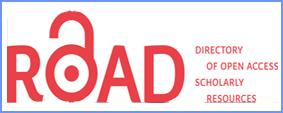THE INFLUENCE OF ONLINE LEARNING APPLICATION WITH HIWAR METHOD AND ASSIGNMENT ON STUDENT’S MOTIVATION TO LEARNING ISLAMIC SUBJECT AT SENIOR HIGH SCHOOL, SOPPENG, SOUTH SULAWESI
Abstract
This article discusses the influence of the application of online learning with the presentation system of the hiwar method and the assignment method on interest in Islamic education subject (PAI) learning at Senior High School (SMAN) 5 Soppeng. The type of research this research is ex-post facto. Ex-post facto research is research in which the independent variables have been treated, or treatment was not carried out at the time of the research. In this research, the data generated is not in the form of numbers, but data that is expressed symbolically in the form of words. The learning methods that have been offered by the government, are not fully heeded by students. The reason is that many of them feel bored and tired due to the many tasks given by educators. The lesson schedule takes place like classroom learning, but learning is carried out at home so that if there are four subjects in a day, then they will get four assignments at once. To overcome this, it is necessary to have an interest in learning from students.
References
Aan Hasanah, Teacher Profession Development . Bandung: CV Pustaka Setia, 2012.
Abidin Ibn Rusn, al-Ghazali's Thoughts on Education , Cet. III; Yogyakarta: Offset Student Library, 2009.
Ahmad Izzan “The Interpretation of Education: The Concept of Education in the Qur'an, Cet. I: Bandung: Humanities, 2010.
Albitar S. Syarifudin, Implementation of Online Learning to Improve the Quality of Education as an Impact of the Implementation of Social Distancing. Journal of Indonesian Language and Literature Education
Azwar, Saifuddin Research Methods, Yogyakarta: Student Library, 1997.
Bilfaqih Yusuf and M. Nur Qomarudin, Essence of Online Learning Development, Yogyakarta: CV Budi Utama, 2015.
Damopolii Muljono, Islamic Islamic Boarding School IMMIM Print Modern Cet. I; Jakarta: Rajawali Press, 2011.
Ministry of Religion RI, Al-Quran and Translation (Cet . Bandung: Syaamil Quran, 2011.
Ministry of National Education, Big Indonesian Language Dictionary, Language Center , Jakarta: PT Gramedia PustakaUtama, 2008.
Fitriyah," The Effectiveness of the Hiwar Method in Learning Speaking Skills in Arabic Subjects at Sultan Agung 1 Islamic High School Semarang", thesis, UNISSULA Masters Program in Islamic Education, 2017
Furhan Arif, Introduction to Qualitative Research Methods, Surabaya: National Enterprises, 1992.
Hafizhah, “ Application of the Hiwar Method in Arabic Learning for Class VII Students of Madrasah Tsanawiah Ma'had DDI Pangkajene” thesis, Faculty of Tarbiyah and Teacher Training at the Pare-Pare State Islamic Institute, 2019.
Halimatussa'diyah, " The Values of Multicultural Islamic Education" (Surabaya: CV. Jakat Media Publishing, 2020.
Isman, Media Learning in Network (Network Mode ). The Progressive and Fun Education Seminar
Izzan, et al, Hadith Education: The Concept of Hadith-Based Education : Bandung: Humanities, 2010.
Khoeriyah, “ Efforts to Improve Arabic Learning Achievement through the Hiwar Classi Method V Mi Padaan 02 Pabelan District Even Semester 2010/2011 Academic Year, thesis, IAIN Salatiga, 2011
Lexy J. Moleong, Qualitative Research Methods , Bandung: Rosda Karya, 2000.
Mahira B, Islamic Education Materials, Cet. I; Makassar: Alauddin University Press, 2012
Mahmud Muhammad Eka, “Special Methodology for Islamic Religious Education Learning , Cet. I: Yogyakarta: Ar-Ruzz Media. 2019.
Majid Abdul, Learning Planning, Cet. IX; Bandung: PT Youth Rosdakarya, 2013
Marjuni Andi, Philosophy of Islamic Education (Cet. I; Makassar: Alauddin University Press, 2014
Matthew BR Hergenhahn, H. Olson, Theories of Learning, trans. Tri Wibowo, Learning Theory, Cet. VI; Jakarta: Prenamamedia Group, 2015.
Muhammad Ali, Teacher in Teaching and Learning , Bandung: Sinar Baru Algesindo, 2004.
Nasution S., Research Methods (Scientific Research, (Cet. VIII; Jakarta: Bumi Aksara, 2006.
Rahmawati, “ Character Building Through the Hiwar Method ” thesis of the Faculty of Tarbiyah and Teacher Training at the State Islamic University of Sunan Kalijaga Yogyakarta, 2017
Ramayulis, Methodology of Islamic Religious Education , Cet. IV; Jakarta: Kalam Mulia, 2005.
Sanjaya Vienna, Curriculum and Learning , Jakarta: Kencana, 2013.
Sugiyono, Quantitative, Qualitative and R and D Research Methods , 13th Cet; Bandung: Alphabeta, 2011.
Susanto Ahmad, Learning and Learning Theory in Elementary Schools , Jakarta: PrenadamediaGrup, 2016.
Syahidin, “ Exploring Educational Methods in the Qur'an, Bandung: CV. Alphabet, 2009.
Syahidin, “ Searching for educational methods in the Qur'an” (Bandung: CV. Alfabeta, 2009.
Syahidin, Tracing Educational Methods in the Koran (Cet. I; Bandung: Alfabeta, 2009)
Tohir Kholis, “Salafi Islamic Boarding School Education Model, Cet. I; Surabaya: Scopindo Media Pustaka, 2020.
Usman, Learning Models (Jakarta: Raja Grafindo, 2013.
Wahab Rohmalina, Learning Psychology, Jakarta: PT RajaGrafindo Persada, 2016.
Zulkarnain, Transforming the Values of Islamic Education , Yogyakarta: Pustaka Pelajar, 2008
Copyright (c) 2021 Nur Ilham Asnawi

This work is licensed under a Creative Commons Attribution-NonCommercial 4.0 International License.




.png)









